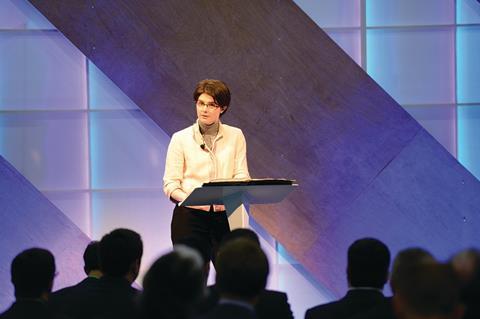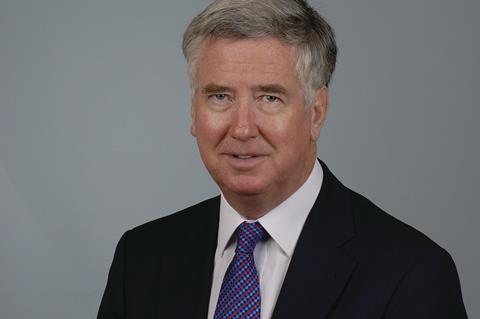This year construction is higher up the political agenda than ever, with calls for fresh investment. The government has responded and is shortly expected to unveil its Industrial Strategy for Construction
Anybody working in construction since 2008 has been dealing with challenging market conditions, and those dependent on public sector work have found it particularly tough since the Comprehensive Spending Review. Despite the cuts that have affected capital programmes, the coalition contains senior figures who champion the cause of construction, such as Lord Heseltine and Vince Cable. Despite austerity, the role of construction has attained a higher position within government thanks to the existence of a chief construction adviser with genuine power and influence.
The initial work of Paul Morrell, the inaugural chief construction adviser, was characterised by an adherence to sustainability and the grasping of building technology, taking a lead with BIM. Now comes the next chapter, with Peter Hansford in post and set to unveil the government’s Industrial Strategy soon. This will set out a shared vision between government and industry now to 2025.
Strategy insights
Thus far the government has been pretty tight-lipped about the fine print of the strategy, so Hansford’s speech at the summit is expected to reveal much-anticipated detail for the first time. What are the themes and policies it will build on? The government wants long-term planning for the industry to be easier, so we have the government pipeline covering both infrastructure and construction. This is a living breathing document with projects being added, or taken off after completion all the time. There will be a refresh of the pipeline after the spending review announcement. With budget pressures ever present, the government wants a 20% cost reduction in projects. To achieve such savings, ministers have been looking to BIM use and greater supply chain competition to reap rewards.
The Industrial Strategy and the Construction Summit aims to be relevant to all sectors and all sizes of business. Initial policies to make public sector works more SME-friendly have included project bank accounts and putting tenders online. Michael Fallon, business and energy minister, is expected to outline high level themes of collaboration between government and industry in what should be a vital insight for beleaguered subcontractors and suppliers.
Michael Fallon, business and energy minister, is expected to outline high level themes of collaboration
Readers of ��ɫ����TV will have noticed a stream of projects this year bankrolled by pension fund or foreign investment money. Canadian pension funds have been particularly active in London, and only last week we saw the Albert Dock masterplan, underpinned by investment from China. Alternative investment like this has been courted since traditional merchant banks have moved away from project finance. At the moment this is transforming commercial and residential real estate in the capital, but what of public infrastructure? The Treasury has not shied away from tapping into this new money - and has been teaming up with UKTI to bring in new investors into its top 40 projects, with big investment from Sovereign Wealth Funds such as Qatar on projects like Heathrow. There are other possible investments on the table, mostly from the middle or far East. They are all at an embryonic stage so Lord Deighton’s speech about attracting new investment, leveraging Treasury money, will give a good indication of how these alternative investments will impact on public sector building.
While the government is looking for new money, it’s also changing as a client. Civil servants are embracing technologies that enable mobile or remote working. The NHS, the Ministry of Defence (MoD) and several major police forces are embarking on radical overhauls of their estates. Recently Andrew Manley, the head of the MoD’s infrastructure arm DIO, said: “We’re asking questions about our estate that haven’t been asked in 300 years”. The Cabinet Office is driving this change. So far its most high-profile deal has been the leasing of Admiralty Arch for £60m. Chloe Smith MP is playing a major part of the process and will explain how the Cabinet Office’s reforms and strategies will create opportunities for the construction industry.
An exchange of views
The Government Construction Summit was conceived as a nexus between industry and the government to develop a greater mutual understanding. To this end, industry will be represented by Neil Bentley, deputy director general of the CBI. The CBI’s pre-Budget report called for improved roads, more investment in energy and for the government to “push through high-impact projects”. Improving infrastructure is a major issue for the CBI, not merely to enable the quick and easy movement of goods and workers, but to boost a sector that is a source of reflationary multipliers.
The government Construction Summit was conceived as a nexus between industry and the government
The top-level keynotes will be joined by a range of key government and industry figures including Andrew Wolstenholme (Crossrail), Peter Schofield (DCLG), Stephen Dance (Infrastructure UK), Jack Pringle (Construction Industry Council), and Mark Clare (Barratt Developments). Collectively they will discuss government policies and efforts at collaboration.
Public sector construction is so broad in scope there’s a need to go far beyond the headline speeches. We’ve introduced clinics, known as Knowledge Hubs, where government and industry experts will give help and advice on topics such as BIM, green construction and procurement. These are intended to flesh out policy direction and give up-to-date information on issues such as PF2 or constantly evolving datasets such as the pipeline.
So to conclude, this year’s event will be a mix of long term thinking and immediate opportunities. Thanks to Knowledge Hubs and polling during conference sessions it will also be one of the most interactive events we’ve ever done. Come along and be part of the dialogue - this is your chance to ask questions and have your say.
Speakers at the Government Construction Summit will include:






























No comments yet